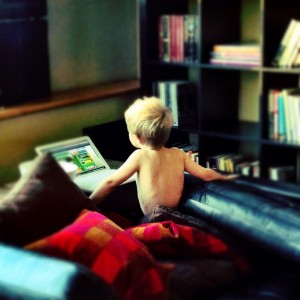 Last week, someone in our community lost her home in a fire. She tweeted about it, and the community rallied (not least because of this dear woman), and although there’s no real happy ending when someone loses so much, it seemed, at least, that one could keep faith with humanity as caring and good. But then – almost immediately – and inevitably – the criticisms came. Why was she was tweeting? Why should someone so irresponsible be supported by the community? Why should the community support anyone they don’t know? What is this ‘community’ thing that everyone is talking about, anyway, because, seriously, how could anyone think that the Internet has communities? There is, after all, no there there.
Last week, someone in our community lost her home in a fire. She tweeted about it, and the community rallied (not least because of this dear woman), and although there’s no real happy ending when someone loses so much, it seemed, at least, that one could keep faith with humanity as caring and good. But then – almost immediately – and inevitably – the criticisms came. Why was she was tweeting? Why should someone so irresponsible be supported by the community? Why should the community support anyone they don’t know? What is this ‘community’ thing that everyone is talking about, anyway, because, seriously, how could anyone think that the Internet has communities? There is, after all, no there there.
I’m not going to speak to the question of community support – I have about eleventeen thousand words to say about that, that I’ll save for another time – but I can speak – have spoken to – the question of why we tweet in those moments that seem to defy tweeting – why, indeed, tweeting during those moments tells us something about the very nature of tweeting, and of social sharing generally. Those words, repurposed, are below.
When I received the call telling me that my father had died, I cried. I cried loud, I cried hard, I fell to the ground and clutched at my aching chest and I wailed. And then, curled up on the floor, phone in hand, I tweeted.
